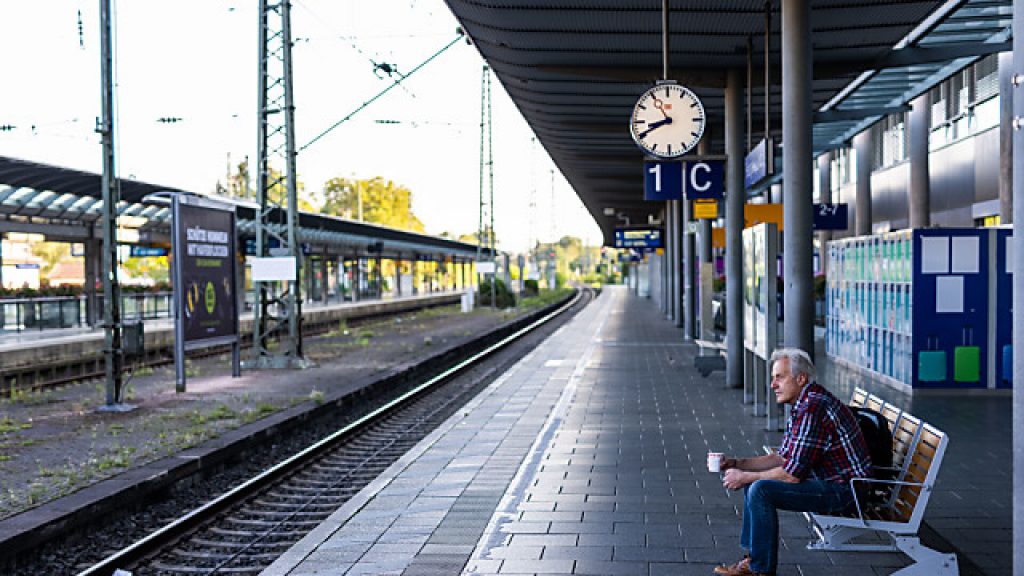The head of the German Federation of Trade Unions (DGB), Rainer Hoffmann, accused the striker GDL of pursuing individual interests and called on them to renegotiate with the railways.
According to Deutsche Bahn, a stable alternative schedule can be offered at the weekend. Accordingly, 30 percent of all trains set off in long-haul traffic instead of 25 percent as in the days prior to the strike. In domestic transport, the goal was a 40 percent load factor – albeit with strong regional differences. The railway called on its passengers to postpone flights if possible and to learn more about the show on a regular basis.
The German train drivers’ union GDL is currently on strike in passenger and freight traffic, and for the first time in the latest round of collective bargaining, the GDL has also gone on strike at the weekend. The strike must continue until Tuesday morning, because the railways failed to file an urgent request for an injunction to end the strikes in court in two cases.
Since the latest wave of strikes began on Wednesday, 7,017 train drivers out of a total of about 19,700 decibel train drivers had stopped working as of Sunday morning. On the other hand, employees of DB infrastructure companies rarely strike. Accordingly, 58 signal workers, 36 maintenance workers and 21 passenger terminals have gone on strike since the labor dispute began.
“What we are seeing conclusively is that there is a professional group like train drivers that assert their own interests against the general interests of all other railway employees,” DGB chief Hoffmann told the Rheinische Post. However, different employees of the company should not be played against each other. The differences between the GDL and Bahn are ‘not very big’ and therefore he considers it ‘wrong’ not to bring the union back to the negotiating table.
Instead of wages and working conditions, GDL President Klaus Wesselsky is “essentially” about maintaining his union “and expanding his influence in order to gain more members in this way,” Hoffmann said. To date, the GDL has been able to negotiate collective agreements in 16 of more than 300 railway companies. The largest transportation association EVG is responsible for all others. This belongs to the DGB, the GDL belongs to the German Association of Officials (dbb).
The newspaper “Bild” reported on the plans of the Federation of Small and Medium Enterprises in the Federation to tighten the right to strike. In a decision issued by the newspaper, it said that in individual areas such as rail and air traffic, but also in medical care and nursing, other industrial work rules should be applied in the future to prevent “unconcerned third parties being overburdened”.
Katja Mast, a member of parliament for the Social Democratic Party, strongly criticized this. “The right to strike is enshrined in the Basic Law. Right,” she told AFP. “You don’t change that quickly even with a CDU position paper.” Rather, it is about further enhancing collective bargaining coverage. “As nerve-wracking as the current train drivers’ strike is” – there should be no weakening of unions through the back door, said Mast.
The Austrian Federal Railways (ÖBB) is still affected by the German train drivers’ strike. Among other things, sleeping planes to Berlin, Amsterdam, Brussels and Hamburg have been canceled and many daily flights to Germany are operated only in the Austrian section. However, daytime traffic within Austria via the German Corner (from Salzburg to Tirol), rail connections between Vienna and Munich, EC traffic on the Italy-Insbruck-Munich route (via Kufstein) and connections on the Vienna-Salzburg route are not affected, however. Bregenz and Zurich, located in the German corner, reported about the ÖBB on their website.

“Food practitioner. Bacon guru. Infuriatingly humble zombie enthusiast. Total student.”








More Stories
Kyiv: Russian Kursk offensive halted
US Presidential Election: Former US Government Officials Warn Against Donald Trump's Election
Netherlands wants to leave asylum system